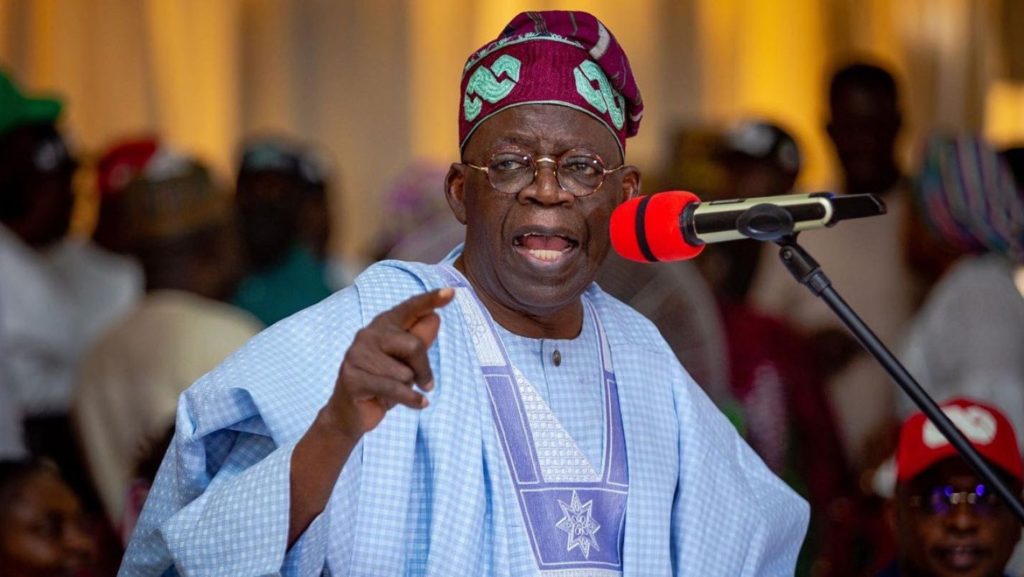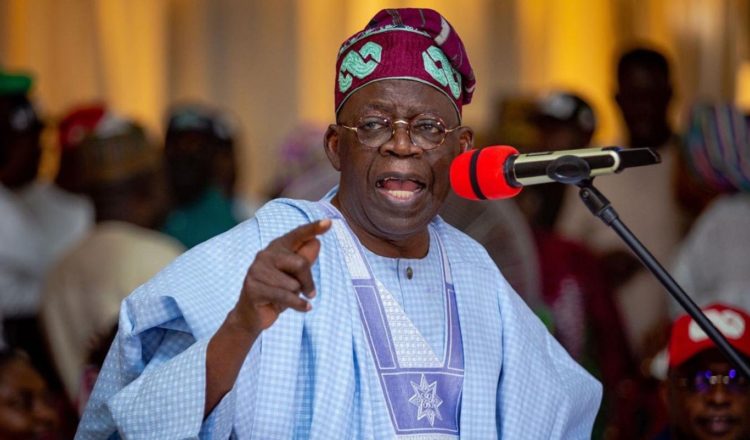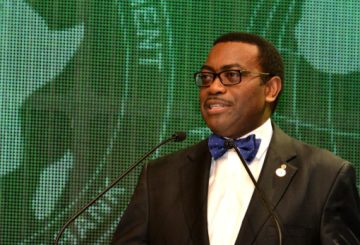
Asiwaju Bola Tinubu, a presidential aspirant and the National Leader of the ruling All Progressives Congress (APC), has released a manifesto outlining his vision for Nigeria’s future, which includes decentralizing law enforcement and creating jobs.
Bayo Onanuga, the director of media and communication for Tinubu’s campaign, claimed in a press release that if elected president, Tinubu would usher Nigeria into a new era of prosperity, security, and political harmony.
Tinubu, who served as Lagos State’s governor from 1999 to 2007, laid out his vision for the state in five broad categories.
Decentralizing the country’s police force and creating tens of thousands of new jobs were two of his campaign pledges, both of which he kept.
A “robust economy” and justice, peace, and prosperity for all were among his campaign promises for Nigeria.
Titled “My Vision for Nigeria,” it promised “a nation transformed into greatness, the pride of Africa, a role model for all black people worldwide and respected among all other countries.
With an expanding industrial base that can meet the basic needs of the population as well as export goods to other countries, we are a thriving democracy with a strong economy.
“A country where prosperity is broadly shared by all citizens, regardless of class, region, or religion
All citizens of a country should have access to necessities such as a safe and secure environment, ample food, affordable housing, health care, and high-quality primary education.”
“A country founded on justice, peace, and prosperity for all.” “‘
On the economy, Tinubu promised to build an economy that would grow the nation’s GDP faster annually for the next four years, as well as provide millions of jobs for the country’s youth.
A new National Industrial Policy, centered on targeted interventions to revitalize specific strategic industries, was also promised by him.
Creating jobs will be President Obama’s top priority, and I will do everything I can to make that happen.” Public works programs, heavy investment in infrastructure, and value-added manufacturing and agriculture will help Nigeria get back to work.
According to him, he plans to create millions of jobs over the next four years by creating an efficient and fast-growing emerging economy that will grow at an average of 12 percent per year.
Six new Regional Economic Development Agencies have been promised by Tinubu as well, which will create sub-regional industrial hubs to maximize each zone’s competitive advantage and industrial growth potential.
A new National Policy on Agriculture was also promised by the presidential aspirant.
Commodity exchange boards, such as the one in Lagos, will be bolstered to ensure that agricultural products like cotton, cocoa, rice, soya beans, corn, palm kernel, and groundnuts receive the minimum price.
When it comes to infrastructure, Tinubu has pledged to “Build A New Nigeria (BANN)” by coming up with a National Infrastructure Plan that encompasses all of the country’s major highways, rail lines, waterways, and power plants, seaports, and airports.
Using a combination of government funding, borrowing, private sector financing, public-private partnership, and concessions, his administration will implement a long-term financial model for the BANN initiative.
Tinubu went on to say that his administration intends to distribute 15,000 megawatts of electricity across the country and that it will do so continuously, 24 hours a day, seven days a week.
I intend to take immediate and urgent action to resolve the current challenges of power generation plants, gas purchasing, pricing, transmission, and distribution. Within four years, my administration’s critical goal is to distribute 15,000 megawatts to all consumers across the country, ensuring a 24/7 sustainable supply, so that no one is left without electricity.
As far as the oil and gas industry is concerned, Tinubu asserted that free and open competition will eliminate the need for government subsidies.
“Supply will come from local refineries, and the price of petroleum products will be determined by the forces of demand and supply”.
The National Strategic Reserve for Petroleum Products will be established by my administration so that supply can be stabilized in the event of unforeseen shortages or surpluses. As a result, there will be no product shortages, and prices will remain stable rather than fluctuating greatly.
Education was also a promise made by Tinubu, who said that his administration’s budget would rise by 25 percent for education.
It was promised that “millions of primary school children across the country” would continue to be fed for free through the APC’s free school feeding program.
There will be no more strikes in tertiary education under Tinubu’s administration because the tertiary institutions will be encouraged to raise funds through grants and corporate sponsorships, with financial autonomy granted to each institution.
Tinubu also promised to increase health care funding in the annual budget by 10%, just like education. They say the National Health Insurance Scheme will be relaunched to cover the majority of Nigerians’ medical expenses.
- Tags: APC, APC primaries, Bola Tinubu, Manifesto





